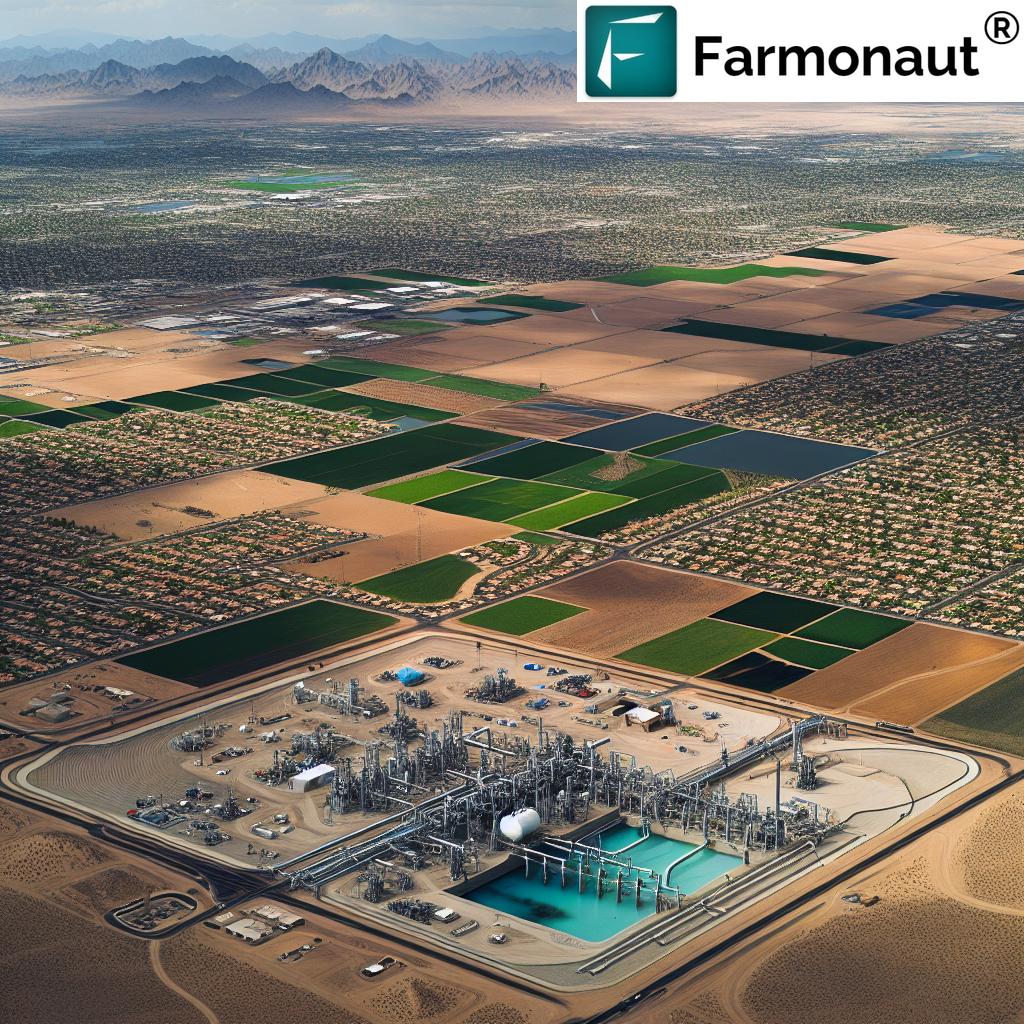Delaware Farm Bureau’s 80th Anniversary: Shaping the Future of Agriculture Through Policy and Innovation
“Delaware Farm Bureau’s 80th anniversary meeting addressed 7+ key agricultural challenges, including land preservation and water management.”
As we celebrate the Delaware Farm Bureau’s (DEFB) 80th anniversary, we find ourselves at a pivotal moment in the state’s agricultural history. The recent landmark annual meeting held at the Modern Maturity Center in Dover was not just a celebration of the past, but a bold step into the future of farming in Delaware. This multi-day conference brought together the brightest minds in agriculture to address pressing challenges and chart a course for sustainable growth in our farming communities.
In this comprehensive blog post, we’ll delve into the key discussions, policy initiatives, and innovative solutions that emerged from this significant event. From sustainable agriculture practices to farm transition planning, we’ll explore how Delaware’s agricultural community is adapting to meet the challenges of the 21st century.
The Significance of DEFB’s 80th Anniversary Meeting
The Delaware Farm Bureau’s annual meeting has always been a cornerstone event for the state’s agricultural community. However, this year’s gathering held special significance as it marked eight decades of the organization’s tireless advocacy for farmers and rural communities. The conference served as a platform for:
- Reflecting on past achievements and challenges
- Addressing current issues facing Delaware’s farmers
- Developing strategies for the future of agriculture in the state
- Fostering collaboration between farmers, policymakers, and industry experts
The event brought together delegates from each county, legislators, and industry professionals, creating a diverse and dynamic environment for discussion and decision-making.
[Image 1]
Key Agricultural Initiatives Discussed at the Conference
To provide a clear overview of the major topics covered during the conference, we’ve compiled a table summarizing the key agricultural initiatives, current challenges, and proposed solutions:
| Initiative | Current Challenges | Proposed Solutions |
|---|---|---|
| Sustainable Agriculture Practices | Balancing productivity with environmental conservation | Implementation of precision farming techniques, crop rotation, and soil health management |
| Farm Transition Planning | Aging farmer population and difficulty in transferring farms to next generation | Comprehensive transition planning workshops, mentorship programs, and financial incentives for young farmers |
| Water Supply Management | Increasing water scarcity and saltwater intrusion into aquifers | Improved irrigation efficiency, drought-resistant crop varieties, and water conservation policies |
| Agricultural Land Preservation | Urban expansion and loss of farmland | Strengthening land preservation programs, zoning regulations, and tax incentives for farmland owners |
| Deer Damage Mitigation | Crop losses due to deer overpopulation | Enhanced hunting programs, fencing subsidies, and research into deer-resistant crops |
| Supporting Next Generation Farmers | High entry barriers for new farmers | Educational programs, access to capital, and land leasing opportunities for aspiring farmers |
Grassroots Engagement: The Annual Meeting of Delegates
The conference kicked off with the annual meeting of delegates, a crucial platform for grassroots engagement in shaping agricultural policy. Delegates from Kent, Sussex, and New Castle counties came together to discuss and propose various policy initiatives. The meeting highlighted the importance of local input in addressing statewide agricultural concerns.
Key resolutions adopted during the meeting included:
- Increased support for future farmers through educational programs and financial assistance
- Enhanced measures for agricultural land preservation
- Advocacy for Delaware’s diverse agricultural community, including specialty crop producers
- Multiple policies aimed at mitigating deer damage to crops
The meeting concluded with the reelection of key officers, including President Bill Powers and First Vice President Steve Breeding, ensuring continuity in leadership as the organization tackles upcoming challenges.
Educational Breakout Sessions: Empowering Farmers with Knowledge
One of the highlights of the conference was the array of educational breakout sessions organized by prestigious organizations like the American Farm Bureau Federation (AFBF) and the Delaware Department of Natural Resources and Environmental Control (DNREC). These sessions provided valuable insights and practical knowledge on various aspects of modern farming.
“The multi-day conference covered 3 critical areas: sustainable practices, farm transition planning, and water supply management.”
Membership Engagement Strategies
AFBF Director Austin Large led an insightful session on effective membership engagement strategies. The focus was on tailoring approaches to different generational groups, recognizing that the needs and preferences of younger farmers may differ significantly from those of more established agricultural professionals.
Deer Damage Management
Experts from DNREC provided crucial information on managing deer damage, a persistent issue for many Delaware farmers. The session covered effective damage permit programs and strategies to protect crops from wildlife intrusion.
Economic Update for Farmers
AFBF economist Betty Resnick delivered a comprehensive economic update, outlining the challenges farmers are facing in an unpredictable market. This session provided valuable insights into market trends, commodity prices, and strategies for financial resilience in agriculture.
Water Resource Management
State climatologists addressed the growing concerns over drought and saltwater intrusion into aquifers. This session emphasized the importance of proactive water supply management in farming, highlighting the need for innovative irrigation techniques and water conservation measures.
[Image 2]
Innovative Technologies in Farm Monitoring and Management
As we discuss the future of agriculture, it’s crucial to highlight the role of innovative technologies in revolutionizing farm monitoring and management. One such technology that’s making waves in the industry is Farmonaut, a pioneering agricultural technology company offering advanced, satellite-based farm management solutions.
Farmonaut’s platform provides valuable services such as:
- Real-time crop health monitoring
- AI-based advisory systems
- Blockchain-based traceability
- Resource management tools
These technologies are helping farmers make data-driven decisions, optimize resource use, and improve overall farm productivity. By leveraging satellite imagery and artificial intelligence, Farmonaut is making precision agriculture more accessible and affordable for farmers of all scales.
For those interested in exploring these innovative solutions, Farmonaut offers various access points:



For developers and businesses looking to integrate Farmonaut’s satellite and weather data into their own systems, the company also offers API access. Detailed information can be found in the API Developer Docs.
Farm Transition Planning: Securing the Future of Agriculture
One of the most critical sessions of the conference focused on farm transition planning, led by Eric Vinores of Nationwide. This session highlighted the importance of having robust plans to mitigate familial challenges in farm transitions, emphasizing that effective transition planning goes far beyond mere estate preparations.
Key points discussed in the farm transition planning session included:
- The importance of early planning and open family communication
- Legal and financial considerations in farm transfers
- Strategies for integrating the next generation into farm operations
- The role of professional advisors in smooth transitions
This session underscored the critical nature of succession planning in preserving Delaware’s agricultural heritage and ensuring the continuity of family farms.
Advocacy Skills: Empowering Farmers to Shape Policy
Recognizing the importance of effective advocacy in shaping agricultural policy, farmer advocate David Hafner facilitated an interactive workshop designed to improve advocacy skills. This session focused on developing public speaking techniques for effective interaction with stakeholders, including legislators, media, and the general public.
The workshop covered:
- Crafting compelling messages about agricultural issues
- Techniques for engaging with policymakers
- Strategies for using social media to amplify agricultural voices
- Role-playing exercises to practice advocacy scenarios
By enhancing these skills, Delaware’s farmers are better equipped to advocate for their interests and contribute to shaping agricultural policies at both state and national levels.
Addressing Mental Health in Agriculture
In recognition of the unique stressors faced by the farming community, Steve Breeding delivered an essential presentation addressing mental health concerns within the agricultural sector. This session highlighted the importance of mental health support systems for farmers and their families.
Key topics covered in the mental health session included:
- Recognizing signs of stress and mental health challenges in the farming community
- Resources available for mental health support
- Strategies for building resilience and coping with farm-related stress
- The importance of community support in maintaining mental well-being
This session underscored the DEFB’s commitment to addressing not just the economic and policy aspects of farming, but also the personal well-being of those who form the backbone of Delaware’s agricultural community.
Water Supply Management: Addressing Drought and Saltwater Intrusion
A significant portion of the conference was dedicated to the pressing issue of water supply management in farming. State climatologists provided insights into the dual threats of drought and saltwater intrusion into aquifers, highlighting the growing dilemma for farmers in the region.
Key points discussed in the water management sessions included:
- Strategies for efficient irrigation and water conservation
- The impact of climate change on water availability for agriculture
- Technological solutions for monitoring soil moisture and water usage
- Policy recommendations for sustainable water management in agriculture
This focus on water supply management reflects the increasing importance of sustainable water use in ensuring the long-term viability of agriculture in Delaware.
Supporting Next Generation Farmers: Ensuring Agricultural Continuity
A key theme throughout the conference was the importance of supporting and encouraging the next generation of farmers. Several sessions focused on strategies to recruit and retain young farmers, ensuring the longevity of the agricultural industry in Delaware.
Initiatives discussed to support next generation farmers included:
- Mentorship programs pairing experienced farmers with newcomers
- Educational programs focused on modern farming techniques and business management
- Financial assistance and loan programs tailored for young farmers
- Land access programs to help new farmers acquire or lease farmland
These efforts reflect the DEFB’s commitment to ensuring a vibrant and sustainable future for agriculture in Delaware.
The Role of Technology in Modern Agriculture
Throughout the conference, there was a strong emphasis on the role of technology in shaping the future of agriculture. From precision farming techniques to data-driven decision making, technology is revolutionizing how farms operate and how farmers manage their resources.
Key technological advancements discussed included:
- Satellite-based crop monitoring systems
- AI-powered farm management tools
- Drone technology for surveying and crop assessment
- Blockchain for improving supply chain transparency
Companies like Farmonaut are at the forefront of this agricultural technology revolution, offering solutions that make precision agriculture more accessible to farmers of all sizes.
Agricultural Land Preservation: Safeguarding Delaware’s Farming Future
A critical topic addressed during the conference was the preservation of agricultural land in Delaware. With increasing pressure from urban expansion, the DEFB emphasized the importance of protecting farmland for future generations.
Strategies discussed for agricultural land preservation included:
- Strengthening existing farmland preservation programs
- Developing new incentives for landowners to keep land in agricultural use
- Advocating for zoning laws that protect agricultural areas
- Educating the public on the importance of preserving farmland
These efforts reflect the DEFB’s commitment to maintaining Delaware’s rich agricultural heritage and ensuring that farming remains a viable and important part of the state’s economy and culture.
Deer Damage Mitigation: Protecting Crops and Livelihoods
One of the most pressing issues addressed at the conference was the ongoing challenge of deer damage to crops. Several sessions were dedicated to discussing and developing strategies to mitigate this persistent problem faced by many Delaware farmers.
Key approaches to deer damage mitigation included:
- Enhancing hunting programs to control deer populations
- Exploring new fencing technologies and providing subsidies for their implementation
- Researching and developing deer-resistant crop varieties
- Improving damage permit programs to give farmers more flexibility in protecting their crops
These discussions led to the adoption of several policies aimed at addressing deer damage, demonstrating the DEFB’s commitment to finding practical solutions to this ongoing challenge.
Economic Challenges and Opportunities in Agriculture
The conference dedicated significant time to discussing the economic challenges facing Delaware’s agricultural sector and exploring opportunities for growth and diversification. AFBF economist Betty Resnick provided valuable insights into market trends and strategies for navigating an unpredictable economic landscape.
Key economic topics discussed included:
- The impact of global trade policies on Delaware’s agricultural exports
- Strategies for diversifying farm income through value-added products and agritourism
- The role of technology in improving farm efficiency and profitability
- Opportunities in emerging markets, such as hemp and specialty crops
These discussions aimed to equip Delaware’s farmers with the knowledge and tools needed to thrive in an ever-changing economic environment.
Sustainable Agriculture Practices: Balancing Productivity and Conservation
A recurring theme throughout the conference was the importance of sustainable agriculture practices. Sessions focused on strategies to balance productivity with environmental conservation, recognizing that the long-term viability of farming in Delaware depends on maintaining healthy ecosystems.
Key sustainable agriculture practices discussed included:
- Cover cropping and crop rotation to improve soil health
- Precision agriculture techniques to optimize resource use
- Integrated pest management to reduce reliance on chemical pesticides
- Conservation tillage practices to reduce soil erosion
These discussions highlighted the DEFB’s commitment to promoting farming practices that are not only productive but also environmentally responsible.
The Future of Delaware Agriculture: A Collaborative Vision
As the conference drew to a close, it was clear that the future of Delaware agriculture will be shaped by collaboration, innovation, and a commitment to sustainability. The DEFB’s 80th anniversary meeting served not just as a celebration of past achievements, but as a launching pad for future initiatives that will support and strengthen the state’s agricultural community.
Key takeaways for the future of Delaware agriculture include:
- The importance of embracing technological innovations to improve farm efficiency and sustainability
- The need for continued advocacy to shape agricultural policies at state and national levels
- The critical role of supporting and mentoring the next generation of farmers
- The value of sustainable practices in ensuring the long-term viability of farming in Delaware
As we look to the future, it’s clear that organizations like the Delaware Farm Bureau will play a crucial role in navigating the challenges and opportunities that lie ahead for the state’s agricultural sector.
Conclusion: A Milestone for Delaware Agriculture
The Delaware Farm Bureau’s 80th anniversary conference was more than just a celebration – it was a testament to the resilience, innovation, and forward-thinking nature of Delaware’s agricultural community. By addressing key challenges, from farm transition planning to water supply management, and embracing new technologies and sustainable practices, the DEFB has set a strong foundation for the next 80 years of agriculture in the state.
As we move forward, the lessons learned and strategies developed during this landmark event will undoubtedly play a crucial role in shaping the future of farming in Delaware. With a renewed focus on sustainability, technology, and supporting the next generation of farmers, Delaware’s agricultural sector is well-positioned to meet the challenges of the 21st century and beyond.
FAQ Section
Q: What were the main themes of the Delaware Farm Bureau’s 80th anniversary conference?
A: The main themes included sustainable agriculture practices, farm transition planning, water supply management, agricultural land preservation, deer damage mitigation, and supporting next generation farmers.
Q: How is technology changing agriculture in Delaware?
A: Technology is revolutionizing Delaware agriculture through precision farming techniques, satellite-based crop monitoring, AI-powered farm management tools, and blockchain for supply chain transparency. Companies like Farmonaut are making these technologies more accessible to farmers.
Q: What strategies were discussed for supporting young farmers?
A: Strategies included mentorship programs, educational initiatives, financial assistance programs, and land access programs designed to help young farmers start and grow their agricultural businesses.
Q: How is the Delaware Farm Bureau addressing the issue of deer damage to crops?
A: The DEFB is addressing deer damage through enhanced hunting programs, exploring new fencing technologies, researching deer-resistant crops, and improving damage permit programs to give farmers more flexibility in protecting their crops.
Q: What role does water management play in Delaware agriculture?
A: Water management is crucial due to challenges like drought and saltwater intrusion. The conference addressed strategies for efficient irrigation, water conservation, and the use of technology for monitoring soil moisture and water usage.
















